#Government
Australia Building Electric Highway Even Though Nobody There Owns An Electric Car
Australia’s Queensland Cabinet announced it would be constructing one of the longest electric highways in the world this week. The expanse of roadway already exists on the country’s eastern seaboard, but the $3 million plan intends to add an 18-station network between Gold Coast and Cairns. While EV owners might not want to hazard into the outback just yet, coastal drivers will have some peace of mind traveling between Australia’s major towns.
The fast-charging network plans to provide free power for at least a year in what the environment minister, Steven Miles, explained was a bid to increase the number of electric cars on Queensland roads.
2017 Jeep and Ram EcoDiesels Are Legal Again, Baby!
The light-duty Chrysler diesel is back. After a bevy of undeclared emissions control devices sank Fiat Chrysler Automobiles into a cauldron of hot water back in January, U.S. regulators have certified 2017 models powered by the company’s 3.0-liter EcoDiesel V6.
Having spent the last half-year cooling their heels, unsold Ram 1500 and Jeep Grand Cherokee oil-burners are once again legal for sale to torque- and economy-obsessed buyers.
FCA earned itself plenty of bad PR after the Environmental Protection Agency all but accused the automaker of a Volkswagen-like scheme to deceive the U.S. government and cheat on emissions tests. The undeclared software amounted to a violation of the Holy Grail of environmental legislation: the Clean Air Act. Software tweaks have now rendered the engine compliant, earning a certificate of conformity (also known as a thumbs up) from the EPA.
Too bad about that Justice Department lawsuit.
U.K. Prepared to Ban Internal Combustion Engines by 2040
Britain will ban the sale of all new gasoline and diesel cars starting in 2040 as part of the government’s plan to reduce air pollution and copy France. The strategy, fronted by U.K. environment secretary Michael Gove and transport secretary Chris Grayling, would not only ban the future sale of internal combustion engines, but also provide a governmental incentive program similar to the United States’ Car Allowance Rebate System — colloquially known as “cash for clunkers.”
Because, as you know, nothing is better for the environment ( or the used car market) than populating scrapyards with fully functional automobiles and having factories across the globe expend extra energy to replace them.
“We can’t carry on with diesel and petrol cars,” Gove told British television audiences on Wednesday. “There is no alternative to embracing new technology.”
Antitrust Regulators Worried German Auto Industry Has Been Running Secret Cartel For Decades
Government authorities are concerned that Germany’s automakers have been running one of the biggest CARtels in history. Allegedly active since the 1990s, automakers used secret working groups to remain in cahoots on decisions regarding technical issues, suppliers, and cost suppression. The groups may have even set the table for Volkswagen’s diesel emissions scandal by encouraging regulatory cheating.
Major manufacturers had apparently agreed on the size of the tanks containing AdBlue, Germany’s preferred diesel treatment fluid to reduce exhaust emissions, and decided the units should be small to keep fluid prices up. When the entire system turned out to be insufficient in meeting regulatory guidelines, illegal software manipulation became the alternative solution.
Germany Forced to Appear Proactive as Anti-diesel Prejudice Swells in Europe
With Paris, Madrid, Athens, and Mexico City all pledging to ban diesel vehicles from entry within the next few years, the fuel’s future doesn’t look particularly bright. While citywide bans like these are becoming increasingly popular in Europe, diesel vehicles still account for almost half of the continent’s registered vehicles.
Germany, which has been speedily moving away from the fuel since Volkswagen’s emissions fiasco, provided more than its fair share of those diesel-powered models. It’s been mulling over how to handle it’s own regulatory matters pertaining to the fuel and the rest of the European Union’s intense pressure doesn’t seem to have fazed it.
Instead of enacting the same transportation ban on diesel vehicles as seen in Paris, Germany has decided to furnish its automakers with the opportunity to clean up their act. Industry officials and politicians have agreed to implement software updates on existing vehicles specifically to keep them eligible for operation within major metropolitan areas. Considering Mercedes-Benz just offered to “voluntarily” recall 3 million Euro-spec cars fitted with diesel engines, that’s incredibly good timing. Likewise, Volkswagen Group claims it will update 850,000 Porsche and Audi vehicles equipped with larger diesel motors.
U.S. Seeking a Trade Deficit Reduction in Early NAFTA Talks and Not Much Else
Despite President Trump having initially framed his proposed NAFTA renegotiations as a hardline “America First” endeavor, the administration’s stance has soften significantly. In a recent summary of objectives, U.S. Trade Representative Robert Lighthizer highlighted fairness as the key issue throughout.
Absent were any mention of abandoning the deal if certain conditions were not met and the steep tariffs previously alluded to by the president. In fact, any mention of tariffs specifically targeted their reduction or elimination — for both imported and exported goods. There are, however, numerous examples that reaffirm the Trump administration’s earlier objectives and a handful of inclusions that should please domestic automakers.
Daimler Summoned by German Government Amid Emissions Cheating Probe
After a pair of Mercedes-Benz engines garnered increased scrutiny from regulatory agencies, the German government has summoned executives from Daimler to account for its activities as a new diesel emissions probe picks up steam.
The automaker has confirmed several of its representatives are attending a hearing on Thursday afternoon to speak with the German Transport Ministry — just one day after news broke that Stuttgart investigators believed some diesel-powered Mercedes vehicles may have been equipped with defeat devices between 2008 and 2016.
The investigation centers around the OM642 V6 and OM651 inline-four turbo-diesels, both of which are under suspicion of being equipped with illegal technology used to circumvent emissions testing. Interesting, Mercedes gave up on certifying diesel-driven vehicles in the United States this year after four models Benz had hoped to sell failed to obtain regulatory approval.
State EV Rebates on Hiatus in California (Unless You're Poor)
California wants to fund more generous rebates for electric vehicle buyers as part of a massive agenda to support the adoption of zero-emission vehicles. In addition to federal incentives, the state has its own rebate program and has made plans to add additional state-sponsored tax breaks for EV buyers.
However, according to the Center for Sustainable Energy, California’s Clean Vehicle Rebate program has almost run out of funding — for a second time — after Governor Jerry Brown neglected to include it in the state budget.
As a result, the program can no longer offer rebates to purchasers of zero-emission vehicles and has placed those who made a purchase after June 30th on a refund waiting list. It’s bad news for anyone in California who wanted to by an electric car. Well, unless you’re poor, because the State of California really wants to convince low-income households to buy electric for some reason.
California Considering Making Electric Cars Cheaper at the Dealership
Federal tax credits for electric vehicles won’t last forever, especially under the Trump administration. While it’s difficult to quantify exactly how many people saw the $7,500 rebate as the deciding factor to “go green,” there is little doubt that it factored into the final purchasing choice of some buyers.
California has made the promotion of zero-emission vehicles a matter of great concern. With General Motors, Nissan, and Tesla all gradually approaching the 200,000-unit quota for vehicles eligible for the tax rebate, the state doesn’t want to see buyers lose purchasing incentives prematurely. With that, California is considering a bill that would provide discounts to EV shoppers at the time of purchase, essentially reducing the sticker price before the car even leaves the lot.
NHTSA Poised for Potential Deregulation Bonanza on Automotive Safety Aids
We knew the Trump administration wanted to deregulate the automotive industry in order to free it from any production hangups, be it imagined or genuine. However, some of the items under consideration for potential elimination are safety features that seem silly to go without. At the top of that list is the requirement that all electrically driven vehicles must emit noise to alert pedestrians to their presence.
However, this isn’t the only safety feature at risk of becoming an optional extra. In budget documents provided to Congress, the National Highway Traffic Safety Administration specified it is considering six separate areas for deregulation. Those include the modern standard for rear-view mirrors and backup cameras in passenger cars, mandatory electronic stability-control units for heavy trucks, and a rule allowing car dealers to install switches to deactivate airbags in customer vehicles.
While some of the rules could be abolished entirely, others are more likely to undergo some gentle retooling to provide automakers greater flexibility. Automakers have long pressed for the revamp of some antiquated, NHTSA-administered safety standards in order to permit the introduction of newer technologies. Still, eliminating any safety mandate is likely to raise the ire of consumer safety advocates, whether the end goal is well-intentioned or not.
No Deadline for NAFTA Talks Despite Industry Plea for a Quick Turnaround
U.S. Trade Representative Robert Lighthizer said on Wednesday there was no definitive timeline for completing NAFTA trade renegotiations. Discussions haven’t even begun between the United States, Canada, and Mexico but legislators and executives have already warned prolonged negotiations would likely be detrimental to their interests.
The automotive industry is mainly seeking a swift and unambiguous update that doesn’t rock the boat too severely. Every day there is no consensus on the trade agreement is another day it has to postpone large investments. Ideally, the U.S. wants the redrawn NAFTA to prioritize its workforce and industry, while the Trump administration aims to tax imports and force companies to do more business within its borders. But, with nothing finalized, many automakers are in a holding pattern. Volkswagen, for example, is putting off decisions on major U.S. investments until it becomes clearer what course NAFTA will take.
Automotive Industry Annoyed China Gets to Decide What Engines It Offers
With the possible exception of the United States in the near future, emission regulations are getting harsher everywhere. Nowhere is that more true than China. Not only does Asia’s most populous country have some of the most stringent emission requirements for new cars, it also has the strictest sales quotas for electrically powered vehicles on the planet. Too strict, according to some automakers.
A Chinese draft regulation issued last week stipulates automakers must sell enough electric or plug-in hybrid vehicles to comprise 8 percent of total volume by 2018, 10 percent by 2019, and 12 percent by 2020. This comes after talks between Chinese Premier Li Keqiang and German Chancellor Angela Merkel that hinted China might have mercy on Germany manufacturers.
Buying an Electric Vehicle Just Got Cheaper (Again) in Texas
The State of Texas arouses visions of oil-rich tycoons with dysfunctional families, a fierce adherence to individual liberties, and vast quantities of trucks bearing the names High Country, Longhorn, Laramie, and King Ranch. While agriculture and industry play a major role in the state’s economy, not every vehicle in the Lone Star State’s fleet relies on gas or diesel.
With numerous major urban centres and a good economy, electric vehicles have made inroads in Texas over the past several years. Soon, a resurrected incentive could light a fire under EV sales. Well, except for one brand.
California Demands VW Build Electric Charging Stations in Poor Neighborhoods
As part of its emissions cheating penance, Volkswagen AG previously agreed to support clean vehicles by injecting a juicy $2 billion into green initiatives in the United States. A whopping $800 million of that sum was reserved for California. On Thursday, state legislators pressed the automaker to spend electric charging infrastructure funds in low-income areas, passing a bill included in a budget package supported by Governor Jerry Brown.
The reasoning behind forcing VW to install more charging stations in disadvantaged communities is twofold. First, and most obviously, is the fact that poorer neighborhoods typically don’t receive the same level of infrastructure advancement as affluent or high traffic areas. In fact, they’re probably the last place the state would bother installing EV charging stations. Secondly, it’s a good way to keep this punishment from becoming a business opportunity.
Criticism arose when rival automakers realized Volkswagen’s charging network could become profitable and give it an early advantage in a competitive new market, especially if it could handpick the sites.
Republican Proposal Would Block States From Setting Self-driving Rules
A coterie of Republican officials believe individual states should be forbidden from governing themselves in regard to autonomous vehicles. Only in its commencement, a new U.S. House proposal claims states would not be within their rights to mandate the design or testing of self-driving cars.
If made law, the proposal would eliminate the need for automakers to acquire any pre-market approval from federal regulators. While that sounds like a free-for-all ripe for accountability issues, several states already have laissez-faire or highly supportive attitudes when it comes to autonomous vehicles, though others could become serious headaches for automakers hoping to swiftly get the technology on the road.
The 45-page legislative draft includes 14 bills and would designate the U.S. National Highway Traffic Safety Administration as the primary agency for regulating self-driving cars. It’s aggressively pro-business and, despite being penned by Republicans, has managed to achieve some bipartisan support.




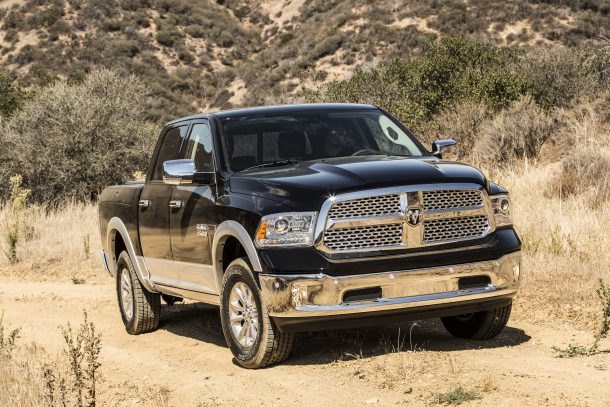

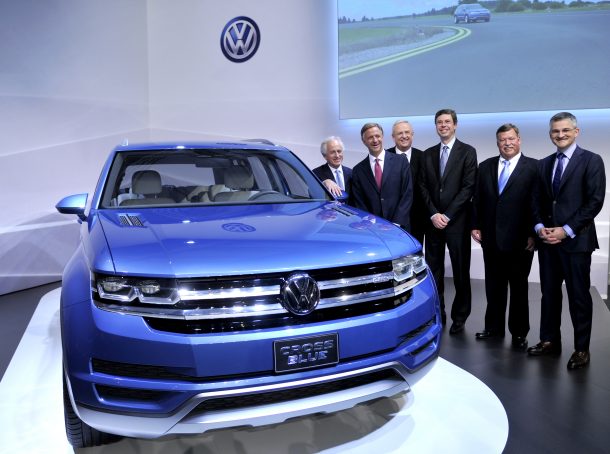



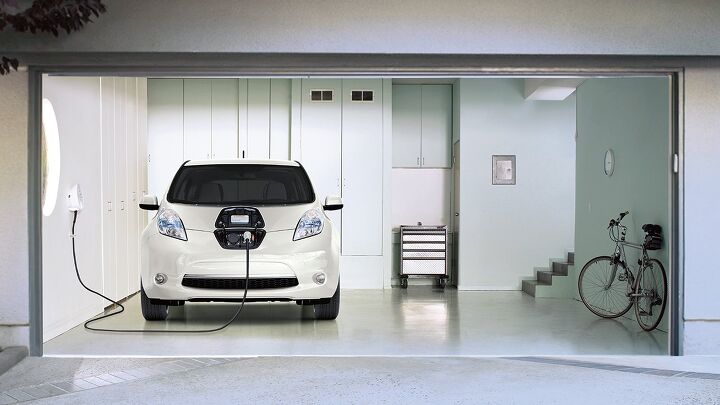
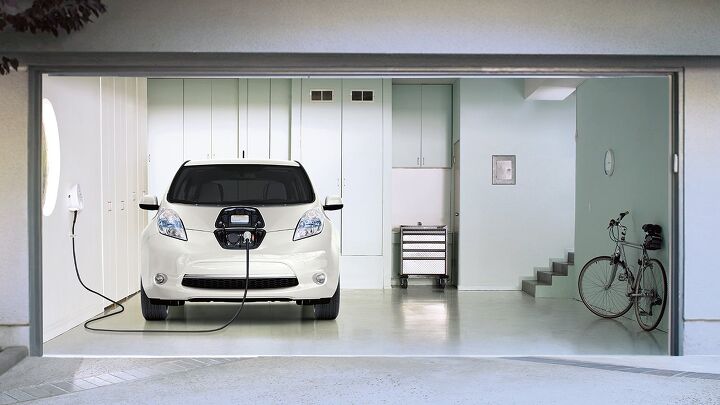
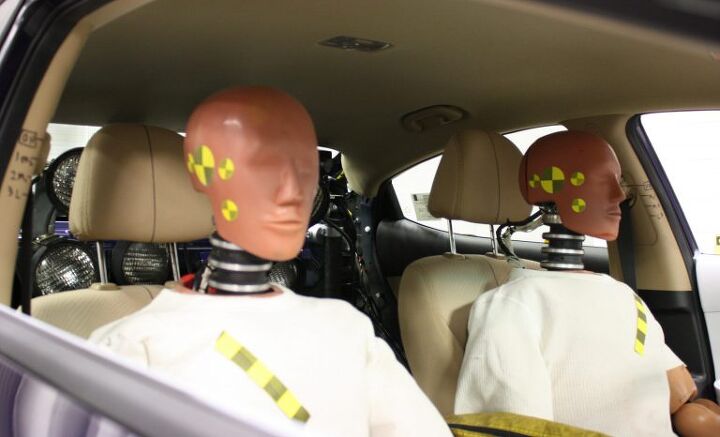

















Recent Comments